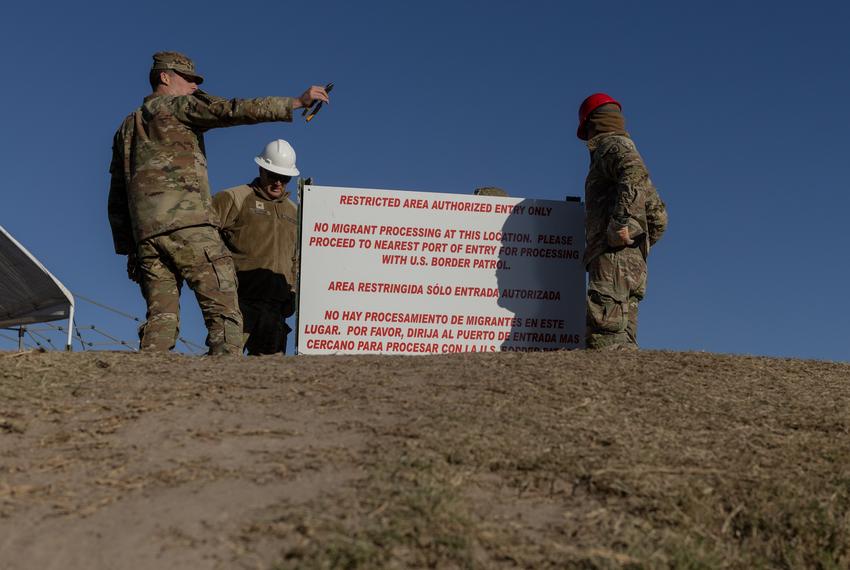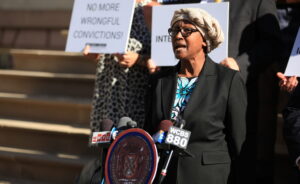
Texas Immigration
Texas, much like Arizona, Alabama, and Prince William County in Virginia did in 2011, is experimenting with state-level immigration enforcement. However, this effort, from both a political and constitutional perspective, is doomed at best, primed to backfire and lead to Republican infighting at worst.
Federal Pre-emption
For starters, immigration is solely a matter of federal jurisdiction due to “pre-emption” – that is, if the federal government has legislated, it will trump any state government law in conflict with it. This is known as “federalism,” and dovetails with the 10th Amendment, or the “States’ Rights” Amendment, granting any rights not reserved to the federal government to the states.
When the federal government has so thoroughly legislated in an area so as to completely control it, this is known as “field pre-emption,” meaning that a state government cannot legislation in any way in the entire field of immigration, nor can it even legislate in a way that would have a strong indirect effect on immigration. In determining these boundaries, the courts have defined the powers of the federal government in immigration in DeCanas v. Bica as “essentially a determination of who should or should not be admitted into the country, and the conditions under which a legal entrant may remain.”
Basically, the states cannot invite anyone from outside of the country in, nor can they kick anyone out. Typically, this leaves to the states only the question of how much to cooperate with federal immigration enforcement, such as honoring an ICE detainer request to hold a suspected undocumented immigrant in a state jail for long enough to do an immigration background check. Some cooperate fully, others not at all (earning the designation “sanctuary city”).
Federal Authority Over Immigration
The authority of the federal government to regulate immigration is found in the Commerce Clause, Article I, Section 8, clause 3 (authorizing the federal government to regulate Commerce with foreign Nations, and among the several States, and with the Indian Tribes), the Naturalization Clause, Art I, Sec. 8, cl. 4 (authorizing the federal government to establish a uniform Rule of Naturalization throughout the United States), the Migration and Importation Clause, Art I. Sec. 9, cl. 1 (the migration or importation of such persons as any of the States now existing shall think proper to admit, shall not be prohibited by the Congress) and the War Power, Art I, Sec. 8, cl. 11 (to declare war, grant letters of marquee and reprisal, and make rules concerning captures on land and water).
In addition, the Supreme Court has found federal constitutional powers to regulate immigration as an incident of Sovereignty. Cases where they ruled this include the two “Chinese Exclusion Cases” where Chinese nationals challenged the Chinese Exclusion Act. These cases were Chae Chan Ping v. U.S., finding that immigration is not subject to normal judicial restraint, and Fong Yue Ting v. U.S., finding that the right of a nation to expel or deport foreigners is “absolute and unqualified.” The Supreme Court has also found this power to be an incident of implied Foreign Policy Power. In subsequent decisions, the court has repeatedly confirmed Congress’ full and exclusive authority over immigration.
Texas Law & Its Effects
In an attempt that runs afoul the constitution and has already been blocked by courts, Texas passed Senate Bill 4 (SB4). This would allow state and local law enforcement to arrest and deport undocumented immigrants in Texas.
Much like its counterparts in Arizona, Alabama, and Virginia, this law invites racial profiling of Latinos, discourages undocumented and mixed-status families from reaching out for emergency services or cooperating with the police, and pushes undocumented workers that several industries are completely dependent upon into neighboring states.
Frankly, in the US, there are some jobs that Americans just aren’t going to do; or at least not in enough numbers for the industries to be viable. This includes meat packing, particularly rough construction work (I used to volunteer every year with 9/11 ground zero construction workers cleaning rubble and bodies), and farming. Because immigration policy is decades out of sync with the needs of these industries, not providing nearly enough worker visas for them to continue to exist, they are pushed to find the workers where they can – this often ends in a large undocumented workforce.
While it’s not practical to deport the roughly 12 million undocumented immigrants just from a logistical perspective (and we already spend billions every year trying to do it), if they all left, those aforementioned industries die overnight, and the downstream effects of this would be horrific to the economy in general.
Previous, Failed Experiments
In Arizona, Alabama, and Prince William County, once local immigration enforcement was pursued, things got ugly quick – it put an enormous amount of pressure on political issues with just the right mix of race and economic insecurities that can make desperate people scream about policies they have no understanding of. After a few immigrants were picked up on the way to work and placed into detention or removal proceedings, their neighbors saw the writing on the wall, and undocumented and mixed-status families began an exodus to find work and homes in neighboring states. Those who did stay were often afraid to go to the police, women’s shelters, or other sources of desperately-needed emergency services.
On the economic end, the farmers who have been praying for immigrant work visas for decades saw their workers leave. This led to a downstream effect on farm worker suppliers, with local hardware stores and others feeling the hit of a significant amount of their customer base leaving, not to mention the restaurants and other businesses that previously served the undocumented community. With crops rotting in the fields for want of workers and local economies becoming depressed with a lack of both workers and customers, Chamber of Commerce Republicans rallied against enforcement.
Current Status
The Supreme Court has blocked enforcement of this law while the lower courts work it out. This is unsurprising as, although SB1070 was similarly challenged and does still exist, the 3 most important sections, that is, making it a misdemeanor for an immigrant not to carry documentation, allowing police to make a warrantless arrest for immigration purposes, and making it illegal to apply for employment without federal work authorization, were all struck down. This is important as the main thrust of the Texas law, allowing local enforcement to deport immigrants, goes further into matters pre-empted by federal law than SB1070 – it really doesn’t have a constitutional leg to stand on.
This law is a blatant overreach that will likely die quietly in the federal court system. However, should it gain more attention, it will place pressure on the gap between the positions of Trump’s “deport them all” MAGA supporters, and the more practical Chamber of Commerce/Reagan Republicans, who want to keep the status quo of the open secret of undocumented workers in their kitchens and fields. My guess is that, much like abortion pre-Dobbs, the loudest Republicans will grandstand on the bill while silently muttering prayers that they won’t again become the dog that caught the car.
Sources
- This article is an opinion piece by attorney Ryan Campbell.





